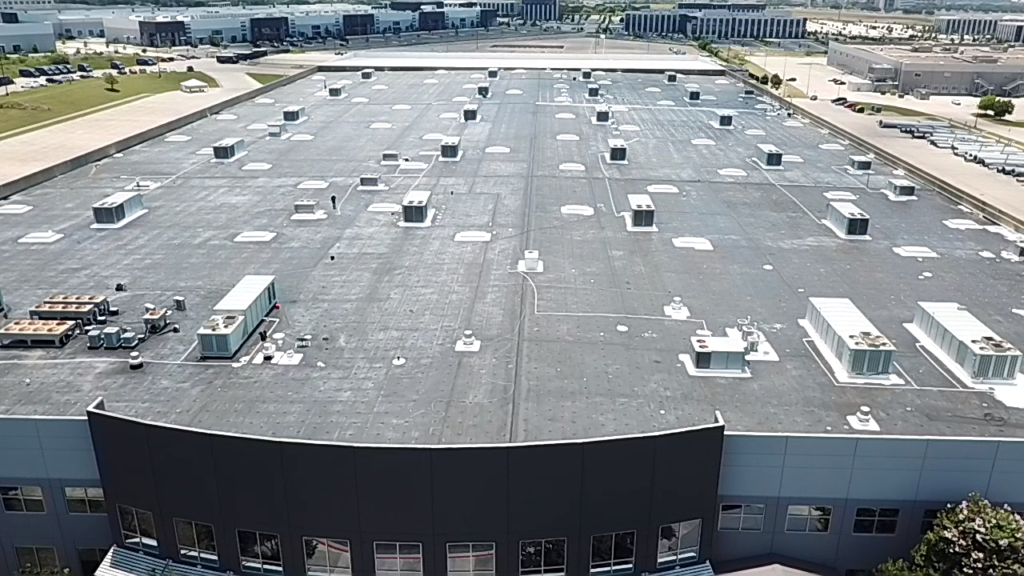HVAC units installed on your commercial roof can become an issue without proper maintenance.
This type of equipment is most commonly found on roofs as most commercial buildings have flat roofs built to support their weight.
However, HVAC units can cause severe damage to your roof over time. Keep reading to find out how!
1. Foot Traffic
Regular HVAC maintenance visits bring excessive foot traffic which can seriously damage your roof, even if it is brand new.
Make sure to include walk pads across the surface to avoid any deterioration.
Cracks or stains on the membrane caused by wear down can lead to roofing leaks.
To discover the most common causes of roof leaks, click here.
2. Improper Installation
Untrained HVAC technicians are still an obstacle to ensuring your roofing surface is issue-free.
HVAC units installed incorrectly can create low spots on the surface, leading to ponding water problems after heavy rainstorms.
Make sure to hire a professional roofing contractor to level any possible slopes.
To discover five questions you should ask your roofing contractor, click here.

HVAC units can cause severe damage to your roof over time.
3. Water Pooling
The goal of HVAC units is to vaporize water and release it back into the air.
However, old HVAC units in hot areas fail to vaporize all moisture, causing pooling water around the base of the units.
Thanks to its inorganic properties, the IPP silicone roof restoration system is excellent for withstanding pooling water.
To discover six benefits of the IPP silicone system, click here.
4. Condensation
Every HVAC system includes heating, ventilation, and air conditioning, creating a lot of condensation that will need draining.
Make sure any condensation drains off your roof and into the gutters.
To discover the types of commercial roof drainage systems, click here.
Call Instacoat Premium Products for Your Roof Restoration!
HVAC units can present certain challenges, but an experienced roofing contractor can solve them.
Call the experts. Contact us today!
